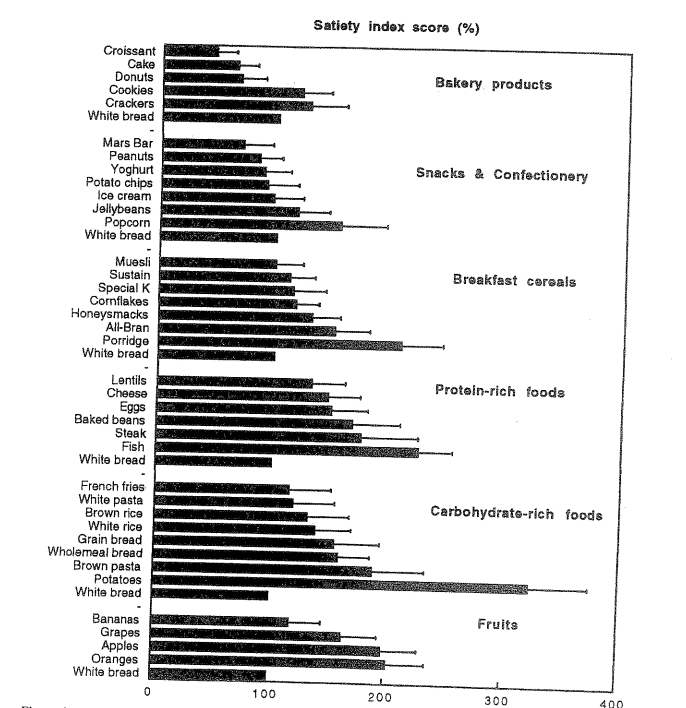- How Much Weight Can You Realistically Lose in 3 Months? - January 14, 2024
- How To Lose 1kg a Week (Guaranteed) - August 20, 2023
- How To Count Calories (or Estimate) and Stay on Track When Eating Out at Restaurants - July 25, 2023
I get a lot of people coming to me asking if they can lose insane amounts of weight in a very short period of time.
“I want to lose 20kg in a month”
“I want to be in shape for my holiday in 3 weeks”
“Can I get a 6-pack in 2 months”
You can imagine my responses to stuff like this…
But while what a lot of people want in terms of speed of weight loss is unrealistic, it is good to be ambitious.
And aiming to lose 1kg a week is certainly at the upper end of what I recommend for the vast majority of people, it is certainly within reach as long as you’re dedicated and able to follow strict targets consistently.
🤷🏽♂️ Firstly, Is It Possible to Lose 1 kg a Week?
Yes, it is possible to lose 1kg in a week.
Don’t get me wrong, it’s not easy; in order to l ose 1kg in a week you’d need to be a calorie deficit of around 1,000 calories per day.
That means; if you you used 2,500 calories a day (which is typical for a moderately active male), then you’d need to eat 1,500 calories every day for a week while maintaining your activity levels.
Not easy, but possible.
Before you set out to try and lose 1kg a week you need to ask yourself how much you want to lose in total.
If it’s just a kilo or two, then you can probably maintain a deficit of 1,000 calories a day for a couple of weeks.
If it’s anything over 5kg however, you may well struggle to maintain that size of deficit long term
Who Should Be Aiming To Lose 1Kg a Week?
- People who only want to lose 1-3kg
- People who are relatively heavy 90-130kg
- People who are fairly active
- People with previous dieting experience
- People that are driven, serious and have a time-senstive goal (e.g. holiday, wedding)
Who Should Be Losing Weight Slower Than 1Kg Per Week?
- People who want to lose more than 3kg in total
- People that don’t have a time-sensitive goal
- People who are already relatively light 50-80kg
- People that are inactive (sedentary job and low exercise)
🔢 How To Lose 1Kg Per Week, Step by Step
While losing a kilo a week certainly isn’t easy, the process is actually very simple and just involves following a process consistently.
- Calculate maintenance calories
Just use the calculator below to work out your maintenance calories (in step 3 select ‘maintain weight’)
- Calculate the Required Calorie Deficit
Once you have your maintenance calories, simply subtract 1,000.
For example, if your estimated maintenance calories are 2,500, then you’ll need to eat an average of 1,500 calories every day
- Adhere to Target
Over to you!
Hit your calorie target on a daily basis for 7 days while maintaining activity levels and you should be looking at a loss of around 1kg
- Rinse and Repeat
If you want to lose more weight, you’ll need to carry on hitting these targets consistently
N.B. Remember your maintenance calories from the calculator are an ESTIMATE. You may need to eat slightly fewer calories to achieve your goal loss of 1kg per week
⚠️ Is Losing 1kg a Week Safe?
It really depends on the person.
While losing a kilo a week might be perfectly safe for someone people, it might not be for others.
When undertaking such a diet you need to be aware of factors like
- The requirements of your job
- Family responsibilities
- Exercise energy requirements
- Social commitments
For example, if you need to eat a 1,000-calorie daily diet to hit 1kg a week of weight loss, this may well affect your ability to focus at work, look after your kids, or your capacity to perform optimally when you exercise.
This study states that for most people, a daily calorie deficit of 500-750 calories a day is the right ballpark for most people
This means for most men, eating between 1,500 and 1,800 calories, and for most women eating between 1,200 and 1,500 calories.
This would actually result in a weekly loss of 0.5kg-0.75kg per week which may not be as fast as you want, but it is safe, sustainable and effective enough.
In some cases, the calories required to hit a kilo of weight loss per week fall into the ‘very low-calorie diet’ (VLCD) category; this describes calorie intakes of 800 per day and under
This study states that very low-calorie diets should only be used in extreme cases where there is a risk to health and should only be used with medical monitoring.
This does suggest however, that if you’re eating above 800 calories a day, losing a kilo a week is safe
📉 The Calorie Deficit Required to Lose 1Kg a Week
A 1,000-calorie deficit is required to lose 1kg a week.
This is because there are 7,700 calories in a kilo of fat (so technically you’d need to be in a deficit of 1,100 calories).
Knowing this however isn’t much help until you know exactly how many calories you’re using on a daily basis.
You can find that out here using my free calculator
🍔 So How Many Calories Should You Eat to Lose 1Kg a Week?
The number of calories you should eat every day if you want to lose 1kg depends on how many calories you use on a daily basis.
Use the calculator above to find out your maintenance calories (select ‘maintain weight’ when you get to step 3).
Once you know how many calories you need to maintain your weight, you can easily find how many you need to LOSE weight – just subtract 1,000, or use this chart below.
| TDEE (Calories Burned) | Calories Required to Lose 1Kg per Week |
| 1250 | 250 |
| 1500 | 500 |
| 1750 | 750 |
| 2000 | 1000 |
| 2250 | 1250 |
| 2500 | 1500 |
| 2750 | 1750 |
| 3000 | 2000 |
| 3250 | 2250 |
| 3500 | 2500 |
| 3750 | 2750 |
| 4000 | 3000 |
🚶🏼♂️How Many Steps Do You Need to Do to Lose 1kg a Week?
Technically, you could lose a Kilo a week doing a grand total of zero steps.
I certainly wouldn’t recommend that however.
In reality, to lose weight at a rate on 1kg, steps will need to be relatively high, probably between 8,000-15,000 steps per day depending on the person
Aside from being great for your overall physical and mental health, walking can help burn a few extra calories every day, which can make the process of weight loss much easier (since you can eat a bit more).
The amount of calories you burn through steps depends on lost of different factors like;
- Your current weight
- The terrain you walk on
- The type of shoes you wear
- The incline (or lack of) you walk on
But it’s safe to say that on average, 1,000 steps will burn roughly 50 calories. Below is a chart that shows
| Steps | Calories Burned |
| 1000 | 50 |
| 2000 | 100 |
| 3000 | 150 |
| 4000 | 200 |
| 5000 | 250 |
| 6000 | 300 |
| 7000 | 350 |
| 8000 | 400 |
| 9000 | 450 |
| 10000 | 500 |
🛌 Could You Lose 1kg a Week Without Exercise?
Yes, you could technically lose 1kg a week without exercise, HOWEVER, by doing so you could be making it unnecessarily hard for yourself because you’ll need to eat even fewer calories than if you WERE to exercise.
For example, if you burned an extra 250 calories through exercise daily, you’d be able to eat an additional 250 calories.
It might not sound like much, but the difference between a 1,000-calorie diet and a 1,250 calorie diet is HUGE
So while losing a kilo is possible without exercise, it’s definitely not advised.
😩 How To Do It Without Starving Yourself
The most important thing is that you can stick to the targets required to drop a kilo a week. If you can’t stick to the targets then there’s zero chance you’ll lose the weight.
The biggest obstacle you’re going to come up against is hunger.
No matter how much you want to drop the weight, hunger is such a powerful signal, the short-term desire for food can often override the longer-term desire to hit your goal weight.
If you can implement the following tips, you’ll be able to keep your appetite under control, and have a much better chance of being successful.
Low-Calorie Dense Foods
Prioritise low-calorie dense foods 80-90% of the time.
These are foods that contain relatively few calories for the amount of food. For example, an entire head of Broccoli might only contain 100 calories, but it would be hugely filing as it’d take up so much space in your stomach
Other low-calorie dense foods include;
- Very lean meat and fish
- Fruit
- Skimmed (2% fat) milk
- Other low fat dairy
- Potatoes
Satiating Foods
Focusing on satiating (filling) foods will also help you out.
The less hungry you are, the less likely you are to overeat, and the MORE likely you are to be successful.
You can see the full satiety index below, but some of the most (surprising) filling foods you might not have considered e.g.
- Potatoes
- Porridge
- Brown Pasta
- Popcorn
- Apples

Get Plenty of Sleep
Sleep is vital for a whole range of different reasons, but it plays a huge role in weight loss.
If your sleep is suboptimal, then you may fail to produce enough leptin (the hormone that signals fullness to the brain).
This might make your appetite higher than it would have otherwise been, and therefore more difficult to stick to the right amount of calories you need to eat to lose 1kg a week.
Aim to get 7-9 hours of sleep a night.
Moderate Exercise
As mentioned above, exercise can help you out when you’re losing weight.
Any additional calories you can burn (over and above what you burn normally)will help you either lose weight quicker or eat a bit more (which can help with appetite).
However, if you exercise too frequently or too intensely, you may stimulate your appetite eating so much that you undermine all the additional calories you burned.
For example, you might burn 1,000 calories doing a 10k run, but it could make you so hungry that you eat 1,200 calories.
This is why it is important to get the level of exercise right.
📝 Summary
It IS absolutely possible to lose 1kg a week, however it is important to consider whether or not it is a safe rate of weight loss for you.
Losing a kilo a week is NOT easy, but it is a simple process of following a calorie intake and activity target.
While it is possible, it is much easier for most people to aim for something closer to 0.5kg a week.

Leave a Reply